Continuing the 10th Session program, on the afternoon of November 17, the National Assembly discussed in the hall the draft Law amending and supplementing a number of articles of the Law on National Defense Industry, Security and Industrial Mobilization.
Commenting on the draft Law, National Assembly deputies highly appreciated the efforts of the drafting agency in perfecting the legal framework for the defense and security industry, meeting the requirements and tasks of protecting the Fatherland in the new situation.
This amendment and supplement aims to help the Law, when issued, be highly feasible, ensure clear responsibilities, and demarcate between the two fields of national defense and security, while creating motivation for businesses to participate in the national defense and security industrial value chain.
Agree to establish the National Security Industrial Complex
Regarding the establishment of the National Security Industrial Complex, delegate Le Nhat Thanh ( Hanoi City Delegation) basically agreed with the Government's proposal to add to Chapter II a new section on the National Security Industrial Complex, including four articles 45a, 45b, 45c and 45d, similar to the structure of Section 7 on the Defense Industrial Complex, to clearly distinguish two separate and independent types of Complexes with specific regulations on the National Security Industrial Complex.
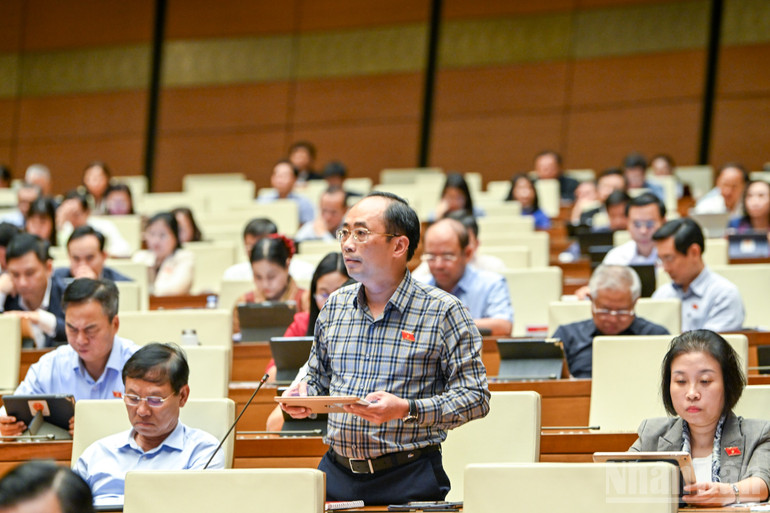
"The addition of these regulations aims to institutionalize the Politburo's guiding viewpoint in Conclusion No. 108 on the formation of a national security industrial complex led and oriented by the State, with the core being core industrial establishments under the Ministry of Public Security , and the participation of organizations and enterprises inside and outside the People's Public Security," delegate Le Nhat Thanh emphasized.
Agreeing with the above viewpoint, delegate Nguyen Tam Hung (Ho Chi Minh City Delegation) said that the draft Law supplementing regulations on the National Security Industrial Complex is a big step forward, but the scope of functions in Article 45a is still wide and easily overlaps with the defense industrial system.
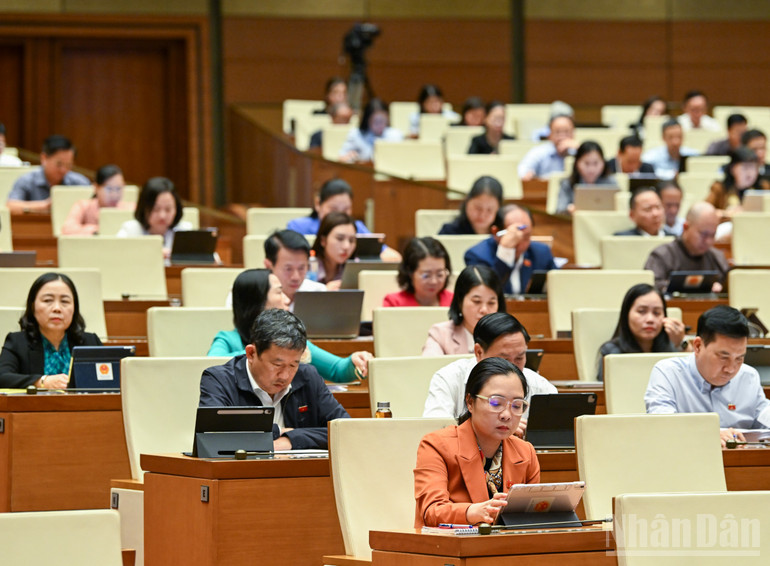
Therefore, the delegate suggested that the Drafting Committee study, review, and clarify the scope of purely security products such as cyber security, big data, artificial intelligence, security biotechnology, and technical expertise instead of expanding to the field of coastal patrol vehicles, which are mainly within the scope of national defense and border protection. According to the delegate, this is a content that needs to be defined to maintain consistency.
Regarding the nuclear National Security Industrial Complex, Article 45b of the draft law assigns the nuclear complex autonomy in research, production, joint ventures, and partnerships, especially related to state secrets and technology secrets for exporting security products. Delegate Nguyen Tam Hung emphasized that this is a group of sensitive tasks that require an approval mechanism from the Ministry of Public Security and mandatory internal security assessment. If there are no strict regulations, the risk of core technology leakage in the security field is very high.
Regarding preferential responsibilities for consortium members in Article 45c, the draft Law stipulates that enterprises participating in consortiums are entitled to incentives on tax, credit, labor, land, etc. However, according to the Ho Chi Minh City delegation, the draft Law does not have criteria for evaluating enterprises and conditions for receiving incentives.
Delegate Nguyen Tam Hung suggested that the Drafting Committee consider adding the following principle: Incentives must be linked to specific tasks, businesses must meet security standards, system safety and confidentiality and report periodically to the management agency. Because the security industry has the characteristics of high security and secrecy, if incentives are expanded without control criteria, it will affect national security.
Also agreeing with the regulations on the National Security Industrial Complex, delegate Duong Khac Mai (Lam Dong Delegation) proposed to review the "functions and tasks of the National Security Industrial Complex" in Clause 2, Article 45A on the basis of referring to and updating a number of strategic orientations and policies for the development of science, technology and innovation in the provisions of the Law on Science, Technology and Innovation. For example, mastering technology commercialization, expanding international cooperation and proactively participating in the global technology value chain, implementing projects, cooperating in research with foreign countries to master technology...
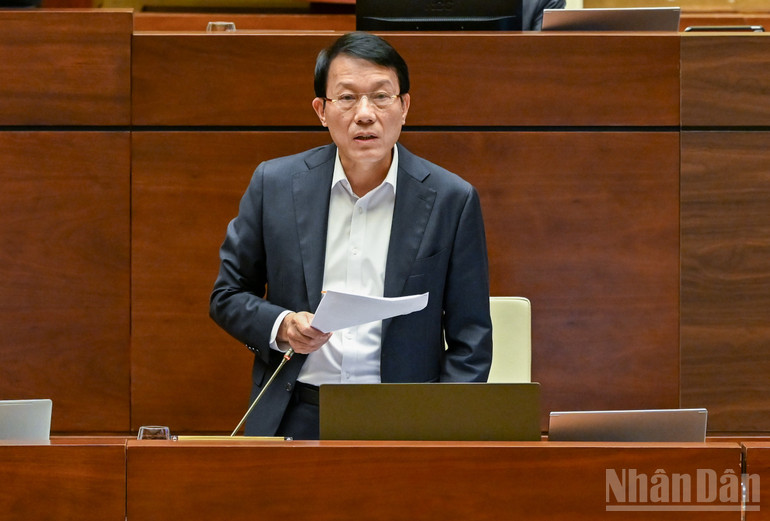
Explaining to the National Assembly, Minister of Public Security Luong Tam Quang emphasized that the product groups listed in Point a, Clause 2, Article 45A of the draft Law are key product groups specifically identified by competent authorities and required for the National Industrial Complex to invest in development until 2030, with a vision to 2045.
The Minister said that the regulation of these groups of products and services as well as the functions and tasks of the National Security Industrial Complex aims to affirm the difference between the National Security Industrial Complex and the Defense Industrial Complex.
"At the same time, to ensure flexibility in the process of building and developing the security industry, the Government has proposed assigning the Minister of Public Security to decide on specific product and service categories in this group to ensure feasibility," said Minister Luong Tam Quang.
Carefully review the functions and expenditure tasks of the Security Industry Development Investment Fund and the National Defense Industry Fund.
Regarding the Security Industry Development Investment Fund, delegate Le Nhat Thanh (Hanoi) agreed with the amendment and supplementation of Clause 3, Article 20, Point a, Clause 4, Article 21 and Article 22 of the current Law to add the provision "Security Industry Development Investment Fund"; adjust the name of the "Defense and Security Industry Fund" according to the provisions of the current Law to "Defense Industry Fund"; add a number of provisions on specific mechanisms, risk acceptance, and the possibility of risky investments in related activities to build the security industry.
"The adjustment of the name 'Defense and Security Industry Fund' to 'Defense Industry Fund' aims to separate it from the Security Industry Development Investment Fund; at the same time, specifically define the allocation of the Defense Industry Fund and the Security Industry Development Investment Fund for defense industry establishments," the delegate emphasized.
Highly agreeing with the separation of the National Defense and Security Industry Fund to establish the National Defense Industry Fund and the Security Industry Development Investment Fund, delegate Duong Khac Mai (Lam Dong) said that the regulation to establish two such Funds aims to help the Ministry of National Defense and the Ministry of Public Security, according to their functions and tasks, have more practical directions and directions.
However, delegates suggested carefully reviewing the spending tasks of the Security Industry Development Investment Fund, ensuring that they do not overlap with the spending tasks of current Funds such as the National Venture Investment Fund and the Science, Technology and Innovation Development Fund.
The Law on National Defense Industry, Security and Industrial Mobilization was passed by the National Assembly before Resolution No. 57 of the Politburo on breakthroughs in science, technology, innovation and national digital transformation. Therefore, delegates believe that the drafting agency should continue to research, review and fully update the spirit of Resolution No. 57 on both the Security Industry Development Investment Fund and the National Defense Industry Fund, and at the same time refer to the provisions of the Law on Science, Technology and Innovation to supplement the operating principles of the Security Industry Development Investment Fund.
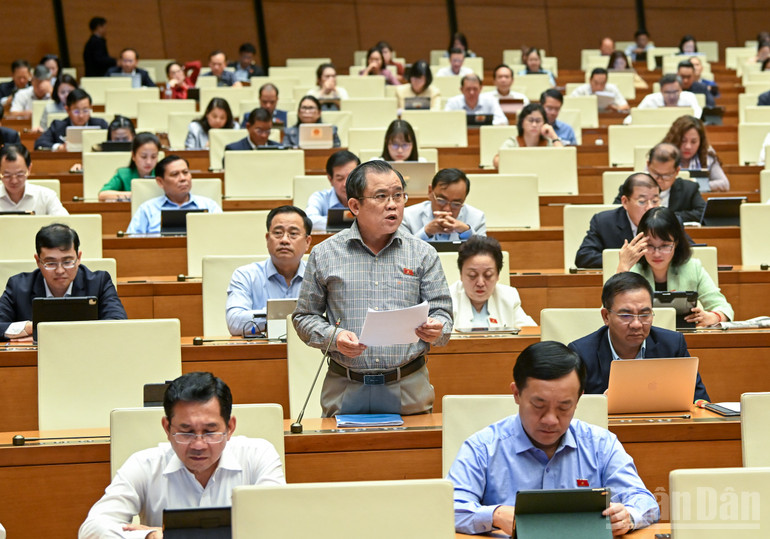
Commenting on the scope of use of the 2 Funds, delegate Nguyen Tam Hung (Ho Chi Minh City) requested the Drafting Committee to clarify the boundaries between the 2 Funds, ensuring no cross-use or duplicate spending. According to the delegate, in practice, dual-use tasks such as cyber security, maritime security, fire prevention, firefighting and rescue, and biosecurity all have defense and security characteristics. Therefore, if the classification principles are not clearly defined, it will be difficult to audit and take responsibility when having to organize explanations.
Regarding the mechanism for setting up the Fund for core establishments, the draft Law stipulates that both core defense industrial establishments and core security industrial establishments must set up a Fund. Delegate Nguyen Tam Hung suggested that the Drafting Committee consider adding criteria to determine core establishments, avoiding cases where it is too broad, creating a financial burden for businesses. "This is an important issue because the nature of defense and security products has a very high level of risk, cost and investment cycle, and needs to be selected with focus," the delegate emphasized.
Regarding the operating mechanism of the two above-mentioned Funds, delegate Nguyen Tam Hung said that the draft Law has identified the two Funds as non-budgetary State financial Funds but has not yet stipulated an independent monitoring mechanism and the principle of avoiding duplication of spending tasks between the two types of Funds. Therefore, it is recommended that the Drafting Committee study and supplement the content of the Government stipulating a monitoring mechanism with the participation of the Ministry of Finance; a mechanism to prevent conflicts of interest when selecting beneficiary enterprises and publicizing the list of tasks and projects using the annual fund.
Explaining this further, Minister of Public Security Luong Tam Quang stated that the use of a common fund for both the defense industry and the security industry leads to difficulties in management. In order to promptly institutionalize the Politburo's direction on building and developing the security industry, and at the same time remove difficulties and obstacles in practice, separating the Defense and Security Industry Fund into two independent Funds is the optimal solution, avoiding overlaps and duplications for both the fund formation mechanism and the fund's use.
Source: https://nhandan.vn/de-xuat-bo-sung-dieu-kien-tiep-nhan-uu-dai-doi-voi-thanh-vien-to-hop-cong-nghiep-an-ninh-quoc-gia-post923767.html








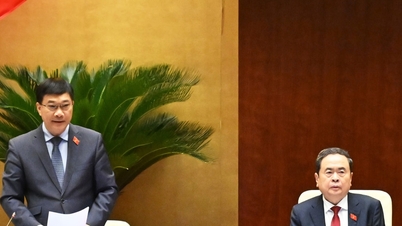




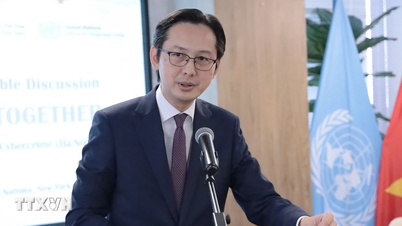
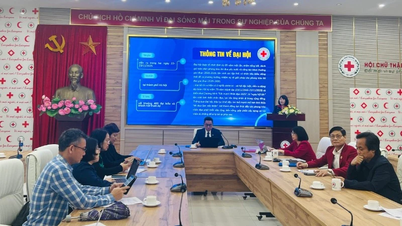







![[Infographic] Schedule of the National High School Excellent Student Exam in 2025](https://vphoto.vietnam.vn/thumb/402x226/vietnam/resource/IMAGE/2025/11/18/1763438886912_training-strategy-2022-2874-5783-jpg.webp)
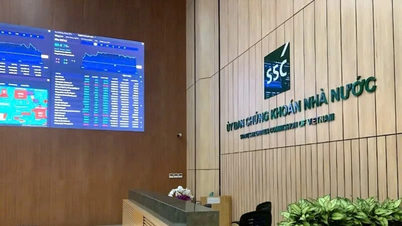
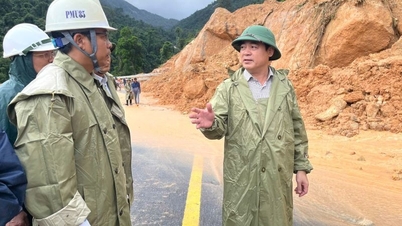


![[Photo] General Secretary To Lam and National Assembly Chairman Tran Thanh Man attend the 80th Anniversary of the Traditional Day of the Vietnamese Inspection Sector](https://vphoto.vietnam.vn/thumb/1200x675/vietnam/resource/IMAGE/2025/11/17/1763356362984_a2-bnd-7940-3561-jpg.webp)








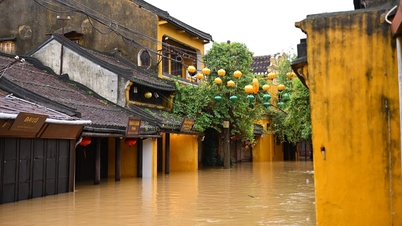
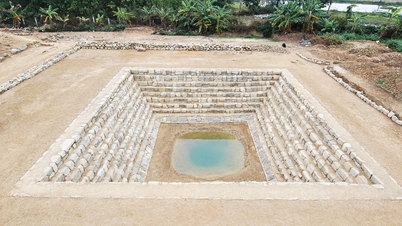




























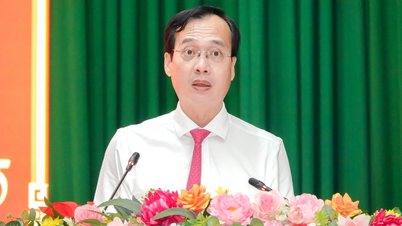

















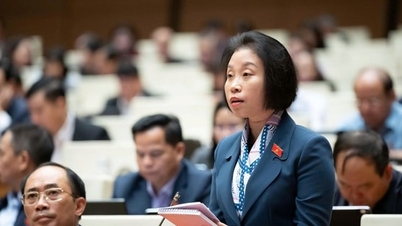




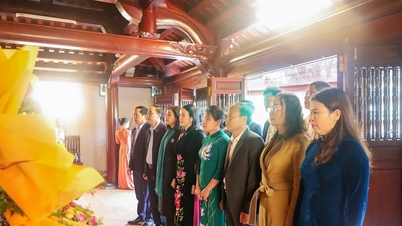













Comment (0)